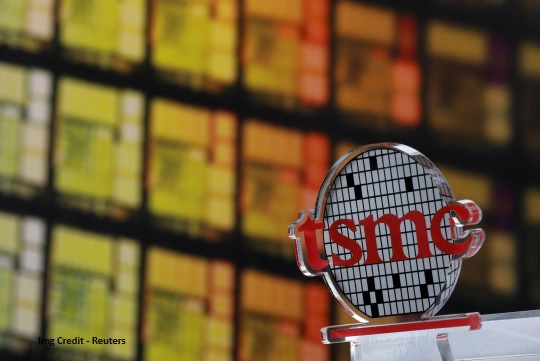Taiwanese Semiconductor Suppliers Plan to Invest in European Chip Factories

In the global race for semiconductor
chips, Taiwanese suppliers are considering investing in European chip
factories, according to a report by The Next Web. Vincent Liu, president and
CEO of LCY Group, a supplier of cleaning agents and solvents to Taiwan Semiconductor
Manufacturing Co (TSMC), stated that they are planning investments in Germany,
and the European market is going to be theirs. LCY Group is not alone in this
endeavor, as three other chemicals suppliers to TSMC have also expressed
interest in investing in Europe. This interest can be attributed to the
emergence of advanced chip factories in the European Union (EU), supported by
the EU's Chips Act. The Chips Act aims to mobilize €43 billion (USD 49.6
billion) in public and private investments to increase the EU's share in global
production capacity from 10% to 20% by 2030. Under this scheme, the EU is
offering subsidies to incentivize foreign chip manufacturers to establish
factories within its borders.
Several major players have already
announced their plans to invest in European chip production. Intel, for
example, has pledged to invest €30 billion (USD 34.5 billion) in two chip
plants in Germany and is also planning to build a semiconductor assembly and
testing facility in Poland worth €4.6 billion (USD 5.3 billion). TSMC has
partnered with European chipmakers Infineon and NXP, as well as auto supplier
Bosch, to build a €10 billion (USD 11.5 billion) chip plant in Germany.
Additionally, GlobalFoundries and STMicroelectronics are planning a €5.7 billion
(USD 6.6 billion) factory in France.
The EU's aim to establish domestic chip
production and strengthen the supply chain is crucial to reduce its heavy
reliance on a few foreign suppliers, such as China and Taiwan for
manufacturing, and the US for design. While experts claim that achieving
complete semiconductor independence is "impossible" for the EU, these
investments are expected to enhance the bloc's competitiveness in the sector. Věra
Jourová, the Commission's VP for Values and Transparency, emphasized the
importance of Europe securing an active part in the global race for chip
leadership. The investments by Taiwanese suppliers and other major players will
contribute to achieving this goal.
By investing in European chip factories,
Taiwanese suppliers are not only expanding their market presence but also
aligning themselves with the EU's strategic goals. This collaboration between
Taiwan and Europe has the potential to reshape the semiconductor industry
landscape and foster greater technological independence for the EU. As the chip
wars escalate between the US, EU, and China for tech supremacy, these
investments mark a significant step towards strengthening Europe's position in
the global semiconductor market.